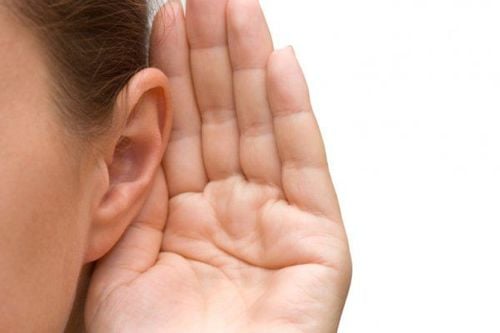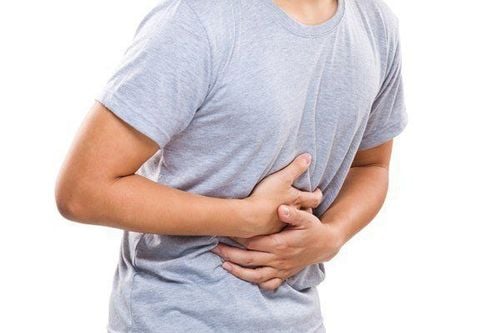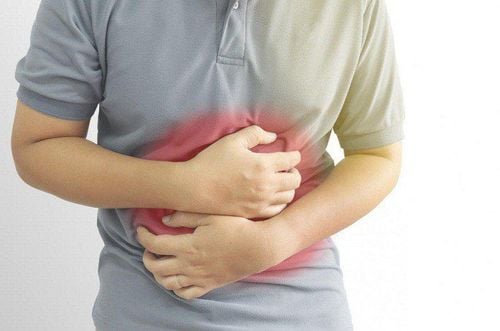This is an automatically translated article.
Posted by Master, Doctor Mai Vien Phuong - Department of Examination & Internal Medicine - Vinmec Central Park International General Hospital
Depression can be severe and change the lives and well-being of those living with it. According to the Anxiety and Depression Association of America, about 15 million Americans are affected by depression each year. In some cases, you can prevent depression, even if you've had it before.
1. What is depression?
Depression is classified as a mood disorder. The Centers for Disease Control and Prevention (CDC)Trusted Source estimates that approximately 8.1 percent of American adults age 20 and older experience depression during any given two-week period from 2013 to 2016.
Each person experiences depression in different ways, some affected by work and productivity, others disrupted relationships and caused health conditions. other chronic.
Factors that increase the risk of depression include:
Arthritis ; Asthma ; Heart-related diseaes; Cancer; Diabetes; Fat. Depression is considered a serious medical condition, which can get worse without proper treatment. People who seek treatment for depression often see symptoms improve within just a few weeks.
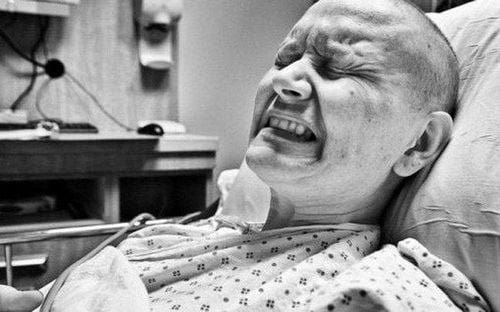
2. 15 ways to avoid depression
Nowadays, there are many lifestyle changes and stress management techniques you can use to prevent or avoid depression. While the triggers can be different for everyone, some of the best techniques you can use to prevent or avoid a relapse of depression include:
2.1 Exercise regularly
Regular exercise is one of the best things you can do for your mental health. According to the Mayo Clinic, exercise can help treat and prevent depression in a few key ways:
Increases body temperature, calms the central nervous system; Releases chemicals like endorphins, which can improve mood; Lowers immune system chemicals that can worsen depression; All forms of exercise can help treat depression, but it's best to exercise regularly. To get more exercise, you can:
Join a sports team or studio (like yoga or kickboxing) where you will be part of a community in addition to being active; Take the stairs instead of the elevator; Make it a habit: This is the best way to maintain fitness levels that are most effective in preventing depression.
2.2 Cut down on social media time
Research has shown that increased use of social media can cause or contribute to depression and low self-esteem. Social media can be addictive and reduce staying connected with family, friends, and even co-workers.
Limiting time on social media can help prevent depression. You can do this by:
Remove all social apps from your phone; Use a site-blocking extension that only allows you to use certain websites for a set amount of time; Only go on social media with a purpose and avoid logging in multiple times a day just to do something.

2.3 Building strong relationships
Having a strong support system and an active social life is important for mental health. Research has shown that “adequate” social support can also protect against depression.
Make sure you stay connected with friends and family regularly, even when your life is busy. Attending social events when possible and finding new interests can help you meet new people, all of which can help you build new relationships.
2.4 Minimize your everyday choices
Have you ever walked into an amusement park and was overwhelmed with what you wanted to do first? Having too many choices can actually cause significant stress and lead to depression, researchers say.
Psychologist Barry Schwartz, author of the book "The Paradox of Choice," describes research that shows that when faced with so many options, people want to make the best possible choice - " maximizers” - faced higher rates of depression.
For many of us, our lives are filled with choices. What clothes do we wear? Should you buy yogurt or eggs, bagels, English muffins or hot dogs for breakfast? The pressure of making right - or wrong - choices is thought to be the cause of depression.
2.5 Stress relief
Chronic stress is one of the most common avoidable causes of depression. Learning how to manage and deal with stress is essential for optimal mental health. To manage stress, you can:
Avoid delegating too much; Practice mindfulness or meditation; Learn to let things happen that you can't control; Keep reading: The best meditation apps of the year.

2.6 Maintain your treatment plan
If you have been through one depressive episode, it is very likely that you will experience another. That's why it's so important to stick to your treatment plan.
Keep taking your prescription medication and never stop taking it suddenly; See your therapist regularly even when the disease is in remission; Continually practice the strategies and coping mechanisms your therapist has taught you.
2.7 Sleep a lot
Adequate sleep is necessary for both mental and physical health. For better sleep:
Don't look at any screen for 2 hours before going to bed (including your phone); Meditate before sleeping; Have a comfortable mattress; Avoid caffeine after noon.
2.8 Stay away from people who make us feel bad
We've all met someone who made us feel bad about ourselves. Sometimes they're a total bully and other times they subtly put us down to make themselves feel better. They might even be someone taking advantage of us. Regardless of the particular situation, avoid those people at all costs. They can lower our self-esteem.
A study from 2012 found that negative social interactions were associated with higher levels of two proteins called cytokines. These two proteins have been linked to inflammation as well as depression.
To avoid people who make you feel bad, you should:
Stay away from anyone who makes you feel worse about yourself; Remove people who take advantage of you from your life; If someone spreads rumors or gossips about someone right after they leave the room, they are likely to do the same to you.
2.9 Eat well
Recent research has shown that regularly eating a high-fat diet can have an impact similar to chronic stress in terms of causing depression. In addition, an unhealthy diet can also deprive your body of important nutrients needed to maintain physical and mental health.
To prevent depression with your diet, you should:
Eat plenty of fruits, vegetables and a balanced diet; Reduce foods high in sugar and fat; Eliminate processed foods from your diet as much as possible. Incorporate more omega-3s into your diet, with foods like salmon or nuts.
2.10 Maintain a reasonable weight
Obesity can lead to low self-esteem, especially when you start adding in the judgments and criticisms of others. According to the Centers for Disease Control and Prevention, there is a clear correlation between obesity and depression. A national survey found that 43% of adults with depression were obese. In addition, adults with depression are more likely to be obese than those without depression.
If you regularly exercise, get enough sleep and eat well, maintaining a healthy weight is a must.
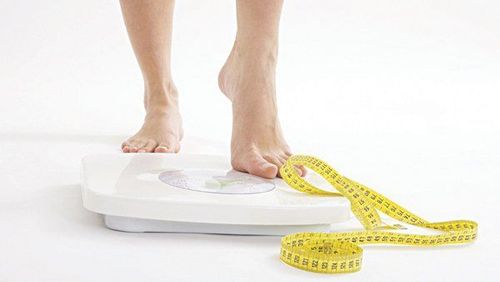
2.11 Management of chronic conditions
People with chronic medical conditions are at high risk of depression as well. Chronic conditions are not something that can be avoided, but in many cases they can be managed. You should:
Consult your doctor if your condition or symptoms get worse; Follow your doctor's treatment plan carefully; Take medication and make lifestyle changes as recommended.
2.12 Carefully read the side effects of prescription drugs
Several different prescription drugs can cause depression as a side effect. Read the label carefully before taking it. You can talk to your doctor and see if other medications or treatments can address your condition without causing depression as a side effect.
Some medications that can cause depression include:
Hormonal drugs, such as birth control pills; beta blockers ; corticosteroid drugs; Anticonvulsants.
2.13 Reduce alcohol and drug use
Excessive alcohol use and use of any medication is not only associated with a higher risk of depression, but also a higher risk of depression relapse. Limit alcohol consumption, and eliminate drug use as safely as possible.
Because limiting alcohol can be difficult in some social situations, you can:
Order an appetizer instead of a drink at happy hour; Plan and invite friends to events where alcohol is not the focus;

2.14 Quit smoking
Smoking and depression can perpetuate each other, although any nicotine can act as a depressant. To stop smoking, you can:
Focus on your reasons for quitting and remind yourself of this every time you are tempted; Know what to expect ahead of time; Tell your friends and ask them to hold you accountable; Exit at the same time as a friend.
2. 15 Make a plan for yourself
There are some triggers for depression, but if you know about them you can plan for them and that can help you cope in advance.
If you suspect yourself or a loved one has signs of depression, the patient needs help and advice from a doctor to get treatment, to avoid the bad consequences that the disease causes. The Psychology Clinic - Vinmec International General Hospital officially came into operation in April 2019, has the function of examining, consulting and outpatient treatment of psychological problems and psychological health. With modern equipment, Vinmec Mental Health Clinic is currently cooperating with experienced professors and experts:
MSc. Doctor Nguyen Van Phi - Psychologist, Vinmec Times City International Hospital: with 7 years of experience working as a lecturer in Psychiatry - Hanoi Medical University, Doctor Psychiatrist at Hanoi Medical University Hospital & Central Geriatric Hospital, and a member of the Vietnam Psychiatric Association. MSc. Dr. Pham Thanh Luan - Psychologist, Vinmec Times City International Hospital: with 5 years of experience in research, examination and treatment of Psychiatric diseases, trained at prestigious universities trust, practice in-depth expertise in the French Republic. MSc. Doctor Nguyen Trong Hien - Psychologist, Vinmec Times City International Hospital: with 6 years as a lecturer in the Department of Psychiatry - Hanoi Medical University and Central Geriatric Hospital, together with Dr. Experience in research, examination and treatment of diseases in Psychiatry such as: emotional disorders, stress-related disorders and body dysmorphic disorders, developmental disorders in children, adolescents & childbirth .... Along with the implementation of psychological tests, intensive psychotherapy for diagnosis and treatment, in order to bring the best medical examination and treatment effect.
Please dial HOTLINE for more information or register for an appointment HERE. Download MyVinmec app to make appointments faster and to manage your bookings easily.
References
Arcego DM, et al. (2017). Impact of high-fat diet and early stress on depressive-like behavior and hippocampal plasticity in adult male rats. DOI: doi.org/10.1007/s12035-017-0538-y Burcusa S, et al. (2007). Risk for recurrence in depression. ncbi.nlm.nih.gov/pmc/articles/PMC2169519/ Chiang JJ, et al. (2011). Negative and competitive social interactions are related to heightened proinflammatory cytokine activity. DOI: doi.org/10.1073/pnas.1120972109 Chronic illness and mental health. (n.d.). nimh.nih.gov/health/publications/chronic-illness-mental-health/index.shtml Depression and obesity in the U.S. adult household population, 2005-2010. (2014). cdc.gov/nchs/products/databriefs/db167.htm Depression and sleep. (n.d.).





